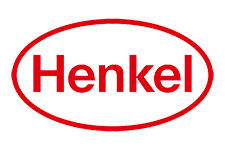Henkel Helps Launch U.S. Plastics Pact Roadmap to 2025
Driving a National Strategy to Active Circular Economy Goals

STAMFORD, Conn., June 15, 2021 /3BL Media/ - Today, Henkel helped launch The U.S. Plastics Pact's (“U.S. Pact”) “Roadmap to 2025,” an aggressive national strategy illustrating how the U.S. Pact, Henkel and fellow signatories, known as Activators, will achieve each of the U.S. Pact’s four 2025 targets through specific actions, responsibilities, and interim timeframes to realize a circular economy for plastics in the United States by 2025.
Launched in August 2020, The U.S. Plastics Pact is a consortium led by The Recycling Partnership and World Wildlife Fund (WWF) as part of the Ellen MacArthur Foundation’s global Plastics Pact network, which unites a holistic ecosystem of cross-industry stakeholders behind a common vision and national strategy to address plastic waste at its source by 2025.
“As a founding member of The U.S. Plastics Pact, we are proud to lead this new Roadmap rollout that aligns with Henkel’s mission to develop solutions that minimize and manage plastic waste. Through our new ambitious packaging targets, we are making great strides to reduce our use of virgin plastic and to integrate materials from sustainable sources into packaging designs for our laundry and beauty products,” said Jillaine Dellis, Head of Sustainability for Henkel North America’s Consumer Products business. “We are fully committed to reaching these targets by 2025 to ensure we’re one step closer to achieving a circular economy in the U.S.”
As an Activator of the U.S. Pact, Henkel joins other stakeholders across the plastics value chain in achieving systemic change and accelerating progress toward the following 2025 targets by inspiring and supporting upstream innovation through coordinated initiatives such as rethinking products, packaging, and business models in order to transition away from today’s take-make-waste model to a circular economy where plastics never become waste:
- Define a list of packaging to be designated as problematic or unnecessary by 2021 and take measures to eliminate them by 2025.
- 100% of plastic packaging will be reusable, recyclable, or compostable by 2025.
- By 2025, undertake ambitious actions to effectively recycle or compost 50% of plastic packaging.
- By 2025, the average recycled content or responsibly sourced bio-based content in plastic packaging will be 30%.
Last year, Henkel North America furthered its commitment on this front through a new ambitious set of packaging targets for 2025 that focus on a 100 – 50 – zero approach. This commitment includes achieving Henkel’s global target of 100% of its packaging being recyclable, reusable or compostable by 2025.1 The company is already well on its way to meeting this target with 80% of its packaging already recyclable to date.
Henkel has also committed to reducing the amount of virgin plastic from fossil sources in its consumer goods businesses (Beauty Care and Laundry & Home Care) by 50%. To accomplish this, the company intends to increase the proportion of recycled material in its consumer goods packaging to more than 30% globally, use less packaging, and use bio-based plastics. Additionally, Henkel is striving for zero waste by supporting waste collection and recycling initiatives, and investing in innovative solutions and technologies to promote closed-loop recycling through long-term strategic partnerships with organizations like Plastic Bank and TerraCycle. Henkel has already achieved zero waste to landfill in our consumer product manufacturing plants across North America.
The U.S. Pact’s Roadmap is designed to kick-start action and help U.S. industry leaders and packaging producers develop a national strategy, advance shared goals, and measure the strength of progress through annual reporting. This national strategy will assist Pact Activators in reaching ambitious goals by 2025 that they could not otherwise meet on their own through sharing knowledge, optimizing investments, identifying gaps, overcoming systemic barriers, and implementing policies.
“The current state of U.S. infrastructure, coupled with the lack of incentives to utilize recycled content in plastic packaging, have put immense strain on the value chain,” said Emily Tipaldo, Executive Director, The U.S. Plastics Pact. “The Roadmap is designed to help U.S. industry leaders act on the significant, systemwide change needed to realize a circular economy for plastics by 2025. The timeframe is short, and the workload is immense, but if we choose to do nothing, the visions of a circular economy across the U.S. will give way to the status quo. We look forward to working with all our Activators to drive this critical change.”
The Roadmap holds Henkel and other Activators of the U.S. Pact accountable to sustainability objectives by creating the pathway in which companies, governments, and NGOs can successfully ensure that plastics remain in the U.S. economy and out of the environment for years to come.
To read the U.S. Pact’s full Roadmap, please visit GlobeNewswire.
1 Excluding adhesive products where residue may affect recyclability or pollute recycling systems.

